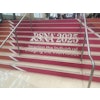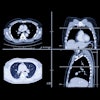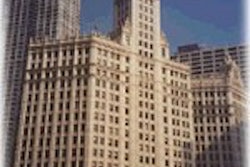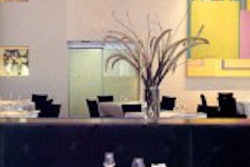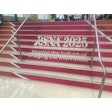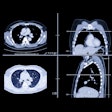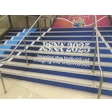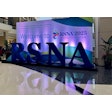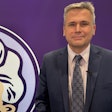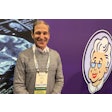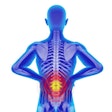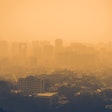Aftershocks from the September 11 terrorist attacks can be felt all the way to this month's Radiological Society of North America meeting -- in the form of heightened security and fewer attendees than normal.
The number of professional pre-registrants was off by 8% compared to last year, said Steve Drew, assistant executive director of the scientific assembly and informatics for the RSNA, of Oak Brook, IL. Vendor pre-registrants were down 19%, a decline likely more attributable to the economy and industry consolidation than the terrorist attacks, however, Drew said.
Pre-registration closed October 26. As expected, the decline is largely due to a dip in foreign attendees.
"If you take out the non-North American registrants, our numbers are comparable to last year," Drew said. "Cancellations have been particularly heavy in Japan."
Drew’s remarks counter rumors that 50% of international attendees have opted to stay home. He also debunked other persistent rumors. First, he said, the RSNA’s board of directors never considered canceling the meeting. And second, the scientific program won’t be riddled with cancellations and no-shows.
Most of the originally scheduled presenters will be attending, and while cancellations are up 200% to 177 as of November 14, the RSNA has basically filled in all the gaps with substitutes, Drew said. Drew added that the program committee isn’t sacrificing quality, either: all new additions to the scientific program meet the RSNA’s stringent standards. In addition, the RSNA will also be inserting presentations on hot topics, he said.
The RSNA is still hopeful that the meeting will reach the 50,000 mark in attendance, down from initial expectations of 60,000. Several medical conventions held after Sept. 11 have reported higher-than-usual on-site registrations, and the society is keeping its fingers crossed for similar results, Drew said.
That’s the official word. Other, admittedly anecdotal, assessments indicate that McCormick Place may be noticeably less crowded than usual.
"The view from Europe is that the RSNA will be down by at least 30%," said professor Janet Husband of the Royal Marsden NHS Trust’s academic department of diagnostic radiology. "Many European delegates are not going. Certainly, if anything further happens, I think the international delegation will be very much reduced."
But others contend European attendance is holding steady.
"I have not heard any such rumor, and I would say that there won’t be a significant drop in the number of participants from Europe," said Professor Rolf Güenther of the diagnostic radiology clinic at the University of Aachen in Germany.
For most Europeans contacted by AuntMinnie, it’s not a question of whether they’ll attend, but how. A member of the Society and College of Radiographers, and another delegate from another institute, both of whom asked not to be quoted by name, said their plane tickets to Chicago had been canceled by the airlines, forcing them to make new reservations.
As for security, a September RSNA news release said the city of Chicago, McCormick Place, many Chicago-area hotels and the RSNA itself are working to ensure maximum safety for all attendees. Although Drew declined to elaborate on the nature of these precautions, the McCormick Place Web site states that the convention center has increased security near loading docks and truck marshalling areas. The convention center has also increased both foot patrols and mobile patrols.
In an encouraging note, the first major McCormick Place trade show to convene since September 11, the October 2-4 Plastics USA meeting, saw only an 8% decline in attendance compared to its previous convention.
By Dan Krotz
AuntMinnie.com contributing writer
November 14, 2001
Leslie Farnsworth contributed to this article.
Related Reading
RSNA pre-registration dips, November 15, 2001
RSNA rebuts conference cancellation rumors, October 24, 2001
Copyright © 2001 AuntMinnie.com
